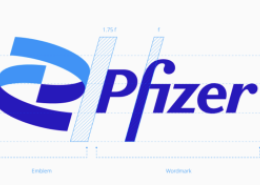Advisory Committee on Immunization Practices Votes to Recommend Pfizer’s Prevnar 13® Vaccine in Adults Aged 65 Years and Older
Pfizer Inc. (NYSE:PFE) today announced that the Centers for Disease Control and Prevention’s (CDC) Advisory Committee on Immunization Practices (ACIP) voted to recommend Prevnar 13® (Pneumococcal 13-valent Conjugate Vaccine [Diphtheria CRM197 Protein] (PCV13) for routine use to help protect adults aged 65 years and older against pneumococcal disease, which includes pneumonia caused by the 13 pneumococcal serotypes included in the vaccine. Specifically, the ACIP voted to recommend the following:
- Adults 65 years of age or older who have not previously received pneumococcal vaccine or whose previous vaccination history is unknown should receive a dose of PCV13 first, followed by a dose of PPSV23
- Adults 65 years of age or older who have not previously received PCV13 and who have previously received one or more doses of PPSV23 should receive a dose of PCV13
- The recommendations for routine PCV13 use among adults 65 years and older* should be re-evaluated in 2018 and revised as needed (*if approved by ACIP and CDC Director)
The recommendations, including the time intervals between vaccines, will be forwarded to the director of the CDC and the U.S. Department of Health and Human Services for review and approval; once approved, the recommendations are published in the Morbidity and Mortality Weekly Report.
“Immunization with Prevnar 13 can play an important role in helping to reduce the incidence and burden of vaccine-type pneumococcal community-acquired pneumonia and invasive pneumococcal disease among adults 65 years of age or older,” said Luis Jodar, Ph.D., vice president, Vaccines, Global Medicines Development Group and Scientific Affairs. “This additional ACIP meeting recognizes the importance of implementing an adult recommendation for Prevnar 13 in advance of the U.S. influenza season, the time of year when this population is most likely to be considering vaccination.”
Pneumococcal pneumonia is the most common type of community-acquired bacterial pneumonia in the United States. About 900,000 Americans get pneumococcal pneumonia each year, nearly half of whom end up in the hospital.1 Among adults 50 years of age and older, there are approximately 440,000 cases of pneumococcal pneumonia each year in the United States,2 with approximately 25,000 pneumococcal disease-related deaths annually.3
“Estimates have placed the yearly direct and indirect costs of adult hospitalizations and outpatient cases due to pneumococcal pneumonia in the United States at nearly $5 billion,”4 said Susan Silbermann, President, Pfizer Vaccines. “As health care professionals in the US begin to implement this new ACIP recommendation, we believe that Prevnar 13 can now help prevent vaccine-type pneumococcal pneumonia in older adults and has the potential to provide an important public health benefit. Pfizer remains committed to working with the healthcare and public health communities to raise awareness of the importance of adult immunization among consumers.”
About Pneumococcal Disease
Pneumococcal disease refers to a group of illnesses caused by Streptococcus pneumoniae bacteria.5 Invasive pneumococcal disease occurs when bacteria enter the bloodstream or another site that is normally sterile.6 Non-invasive pneumococcal pneumonia occurs when the bacteria cause infection in the lungs but are not detected in the blood concurrently.5 In adults, pneumonia is the most common presentation of pneumococcal disease.5 For every one case of invasive pneumococcal pneumonia in adults, it is estimated that at least three cases of non-invasive pneumococcal pneumonia occur.7 While non-invasive forms of pneumococcal disease are typically more common, the invasive types of disease are generally more severe.8
About Prevnar 13
Prevnar 13 was first introduced for use in infants and young children in December 2009 in Europe and is now approved for such use in more than 120 countries worldwide, including the United States and Japan. It is the most widely used pneumococcal conjugate vaccine (PCV) in the world, and more than 640 million doses of Prevnar 7-valent/Prevnar 13 have been distributed worldwide. In addition, Prevnar 13 is approved for use in adults 50 years of age and older in more than 90 countries, and it is also approved in the United States and European Union (EU) for use in older children and adolescents aged 6 to 17 years. Prevnar 13 is also approved in the EU for use in adults 18 to 49 years of age.
INDICATIONS FOR PREVNAR 13®
- Prevnar 13® is a vaccine approved for adults 50 years of age and older for the prevention of pneumococcal pneumonia and invasive disease caused by 13 Streptococcus pneumoniae strains (1, 3, 4, 5, 6A, 6B, 7F, 9V, 14, 18C, 19A, 19F, and 23F). This indication is based upon immune responses to the vaccine
- For children 6 weeks through 17 years of age, Prevnar 13® is approved for the prevention of invasive disease caused by the 13 vaccine strains, and for children 6 weeks through 5 years for the prevention of otitis media caused by 7 of the 13 strains
- Prevnar 13® is not 100% effective and will only help protect against the 13 strains included in the vaccine
- Effectiveness when given less than 5 years after a pneumococcal polysaccharide vaccine is not known
IMPORTANT SAFETY INFORMATION
- Prevnar 13® should not be given to anyone with a history of severe allergic reaction to any component of Prevnar 13® or any diphtheria toxoid–containing vaccine
- Children and adults with weakened immune systems (eg, HIV infection, leukemia) may have a reduced immune response
- In adults, immune responses to Prevnar 13® were reduced when given with injected seasonal flu vaccine
- In adults, the common side effects were pain, redness, or swelling at the injection site, limitation of arm movement, fatigue, headache, muscle pain, joint pain, decreased appetite, chills, or rash
- A temporary pause of breathing following vaccination has been observed in some infants born prematurely
- The most commonly reported serious adverse events in infants and toddlers were bronchiolitis (an infection of the lungs) (0.9%), gastroenteritis (inflammation of the stomach and small intestine) (0.9%), and pneumonia (0.9%)
- In children 6 weeks through 17 years, the most common side effects were tenderness, redness, or swelling at the injection site, irritability, decreased appetite, decreased or increased sleep, and fever
- Ask your health care provider about the risks and benefits of Prevnar 13®. Only a health care provider can decide if Prevnar 13® is right for you
For the full prescribing information for Prevnar 13, please click here http://www.pfizer.com/products/#prevnar13.
Pfizer Inc.: Working together for a healthier world®
At Pfizer, we apply science and our global resources to bring therapies to people that extend and significantly improve their lives. We strive to set the standard for quality, safety and value in the discovery, development and manufacture of health care products. Our global portfolio includes medicines and vaccines as well as many of the world's best-known consumer health care products. Every day, Pfizer colleagues work across developed and emerging markets to advance wellness, prevention, treatments and cures that challenge the most feared diseases of our time. Consistent with our responsibility as one of the world's premier innovative biopharmaceutical companies, we collaborate with health care providers, governments and local communities to support and expand access to reliable, affordable health care around the world. For more than 150 years, Pfizer has worked to make a difference for all who rely on us. To learn more, please visit us at www.pfizer.com.
DISCLOSURE NOTICE: The information contained in this release is as of August 13, 2014. Pfizer assumes no obligation to update forward-looking statements contained in this release as the result of new information or future events or developments.
This release contains forward-looking information regarding Prevnar 13/Prevenar 13, including its potential benefits, that involves substantial risks and uncertainties that could cause actual results to differ materially from those expressed or implied by such statements. Risks and uncertainties include, among other things, uncertainty regarding the commercial impact of the ACIP’s recommendation regarding Prevnar 13; uncertainty concerning the commercial impact of the results of the CAPiTA (Community-Acquired Pneumonia Immunization Trial in Adults) trial; uncertainty concerning whether and when regulatory authorities in various jurisdictions will update the label and vaccine technical committees in various jurisdictions (other than the ACIP) will update their recommendations with respect to the use of Prevnar 13/Prevenar 13 in adults based on the results of the CAPiTA trial and other factors; whether and when regulatory submissions may be made in additional jurisdictions for Prevenar 13 for the prevention of pneumococcal pneumonia in adults caused by the 13 serotypes in Prevenar 13, and whether and when regulatory authorities in jurisdictions where such applications are pending or submitted will approve any such submissions, as well as their decisions regarding labeling and other matters that could affect the availability or commercial potential of that additional indication for Prevenar 13 in those jurisdictions; and competitive developments.
A further description of risks and uncertainties can be found in Pfizer’s Annual Report on Form 10-K for the fiscal year ended December 31, 2013 and in our subsequent reports on Form 10-Q, including in the sections thereof captioned “Risk Factors” and “Forward-Looking Information That May Affect Future Results”, as well as in its subsequent reports on Form 8-K, all of which are filed with the SEC and available at www.sec.gov andwww.pfizer.com.
PSA666809
1 Centers for Disease Control and Prevention. Pneumococcal Disease – Fast Facts. Available athttp://www.cdc.gov/pneumococcal/about/facts.html. Accessed March 12, 2014.
2 Huang SS, Johnson KM, Ray GT, Wroe P, Lieu TA, Moore MR, et al. Healthcare utilization and cost of pneumococcal disease in the United States. Vaccine. 2011;29:3398-3412.
3 Weycker D, Strutton D, Edelsberg J, Sato R, Jackson LA. Clinical and economic burden of pneumococcal disease in older US adults. Vaccine. 2010;28(31):4955-4960. doi:10.1016/j.vaccine.2010.05.030.
4 Huang SS, Johnson KM, Ray GT, et al. Healthcare utilization and cost of pneumococcal disease in the United States. Vaccine. 2011;29:3398–3412.
5 Centers for Disease Control and Prevention. Pneumococcal disease. In: Atkinson W, Wolfe S, Hamborsky J, eds. Epidemiology and Prevention of Vaccine-Preventable Diseases. 12th ed., second printing. Washington DC: Public Health Foundation, 2012.
6 Musher DM. Streptococcus pneumoniae. In: Mandell GL, Douglas JE, Dolin R, eds. Mandell, Douglas, and Bennett's Principles and Practice of Infectious Diseases. 7th ed. Elsevier: 2010.
7 Said MA, Johnson HL, Nonyane BAS, et al. Estimating the burden of pneumococcal disease among adults: a systematic review and meta-analysis of diagnostic techniques. PLoS ONE. 2013;8(4):e60273.
8 World Health Organization (WHO). Immunization, Vaccines and Biologicals. Pneumococcal Vaccines. 2003.http://archives.who.int/vaccines/en/pneumococcus.shtml
Pfizer Inc.
Media:
Kim Bencker, 484-865-6452
[email protected]
or
Investor:
Chuck Triano, 212-733-3901
[email protected]








